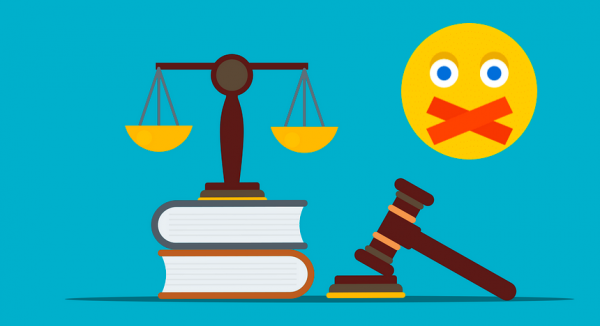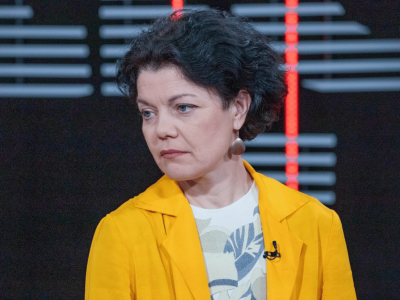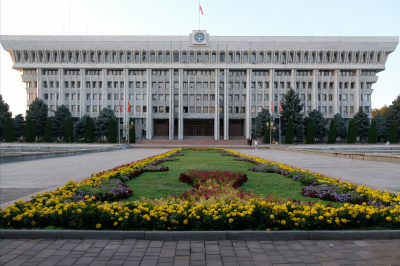
The International Commission of Jurists (ICJ), the Council of Bars and Law Societies of Europe (CCBE), Lawyers for Lawyers (L4L), European Association of Lawyers (AEA-EAL), Helsinki Foundation for Human Rights (HFHR) and the Centre for Constitutionalism and Human Rights of the European Humanity University (CCHR EHU) and the Human Rights Embassy (HRE) (“the undersigned organisations”) call on the Bar Association of Belarus to reverse its decisions to disbar lawyer Natalia Matskevich and to end the practice of disbarment of lawyers for carrying out their professional duties in line with international law and standards on the role of lawyers.
Natalia Matskevich was disbarred by a decision of the Bar Association of 27 October 2021, following disciplinary proceedings initiated by the Ministry of Justice of Belarus and the decision of the Disciplinary Commission of the Minsk City Bar Association earlier the same month.
The case against Natalia Matskevich is related to her representation of Victor Babariko, a former presidential candidate, who was sentenced to 14 years of imprisonment on 6 July 2021. Earlier this year, a lawyer representing Viktor Babariko, Dmitry Layevsky, was disbarred by the Bar Association, and another, Ilia Salei, was arrested on 9 September 2020 on the charge of “calls for actions aimed at causing harm to the national security of the Republic of Belarus” and left Belarus when released on bail in 2021. A decision in disciplinary proceedings against another lawyer representing Victor Babariko, Yevgeniy Pylchenko, is pending.
The formal grounds for disbarment of Natalia Matskevich are related to her defence of Victor Babariko in 2020 and 2021, including two episodes of “interruptions of an investigator”, speaking while an investigator was speaking, and objecting to the statements of the lawyer of a witness for the prosecution. According to the decision of the Disciplinary Commission of the Belarus Bar Association, these actions constitute a “breach of the order of conducting investigative actions” and “unethical actions towards participants of a procedure”. The Commission “took account of the severity of the acts committed, the circumstances under which they were committed, non-recognition of guilt by Matskevich”.
The undersigned organisations consider that the grounds for disbarment show the lawyer acting strictly in line with her professional duties to defend a client, including through zealously challenging the case of the prosecution, and do not provide any legitimate grounds for disciplinary action.
We are concerned that the disbarment of Natalia Matskevich aims to deprive Babariko as well as the lawyer’s other clients, including the opposition leader Siarhei Tikhanovsky, of legal representation of their own choice. This is a right guaranteed under international human rights law including article 14 of the International Covenant on Civil and Political Rights, to which Belarus is a party, and under the national law of Belarus. The disbarments also appear designed to have a chilling effect on the legal profession by intimidating independent lawyers and punishing those who carry out their duties diligently and independently in accordance with the international standards on the role of lawyers. Protection of lawyers against intimidation, harassment or interference, including through the use of disbarment procedures, is essential to ensuring the proper administration of justice and the right to a fair hearing.
According to the UN Basic Principles on the Role of Lawyers, governments must ensure that lawyers are able to perform all of their professional functions without intimidation, hindrance, harassment or improper interference and must not face sanctions for discharging their duties in accordance with professional standards and ethics (Principle 16). Furthermore, lawyers must not be identified with their clients or their clients’ causes as a result of discharging their functions. (Principle 18).
These protection measures are crucial to providing effective legal assistance to the clients.
Whenever there are reasons to take disciplinary action against a lawyer, the proceedings must meet the standards guaranteed by international human rights law, including the UN Basic Principles on the Role of Lawyers. In particular: “All disciplinary proceedings shall be determined in accordance with the code of professional conduct and other recognised standards and ethics of the legal profession and in the light of these principles” (Principle 29). Charges or complaints against lawyers must be adjudicated in a fair and proper procedure, which should include the right to a fair hearing. Any sanctions against lawyers for disciplinary misconduct must be proportionate to the infraction.
In any event, according to the UN Basic Principles, lawyers enjoy immunity for relevant statements made in good faith in written or oral pleadings or in their professional appearances before a court, tribunal or other legal or administrative authority (Principle 20). It is lawyers’ duty to “defend their clients’ interests zealously” and lawyers may be called upon to make strongly worded or challenging arguments as part of the adversarial process (see ECtHR, Nikula v Finland, no. 31611/96).
The undersigned organisations are further concerned that the Belarus Bar Association has failed to function as an independent association of lawyers which upholds the independence and integrity of the legal profession. Rather, it has been instrumental in carrying out reprisals against its own members who defend individuals in Belarus, especially in politically motivated cases, and those who exercise their freedom of expression and speak out on matters of public interest.
The undersigned organisations therefore urge the Belarus Bar Association to change this practice and refrain from using disbarment as a tool of retaliation against the members of the legal profession for representation of individuals, including in politically motivated cases, as well as to take all the necessary measures to ensure that all lawyers in Belarus are able to carry out their professional duties without fear of reprisal, hindrance, intimidation or harassment in order to preserve the independence and integrity of the administration of justice and the rule of law.
Signatories:
International Commission of Jurists (ICJ)
Council of Bars and Law Societies of Europe (CCBE)
Lawyers for Lawyers (L4L)
European Association of Lawyers (AEA-EAL)
Helsinki Foundation for Human Rights (HFHR)
Centre for Constitutionalism and Human Rights of the European Humanity University (CCHR EHU)
Human Rights Embassy (HRE)


